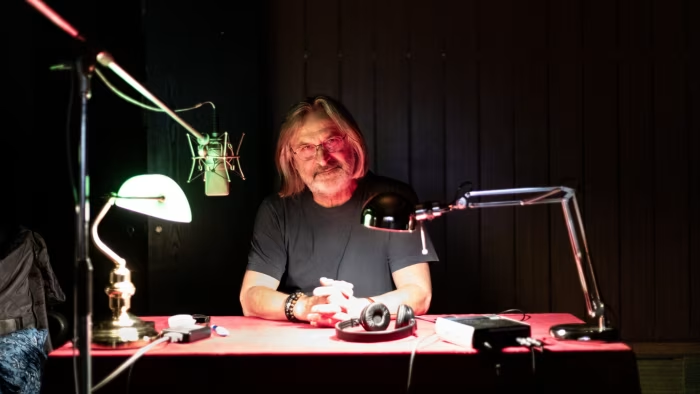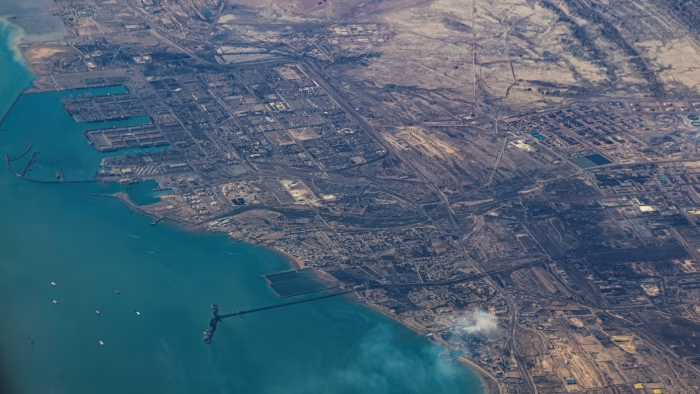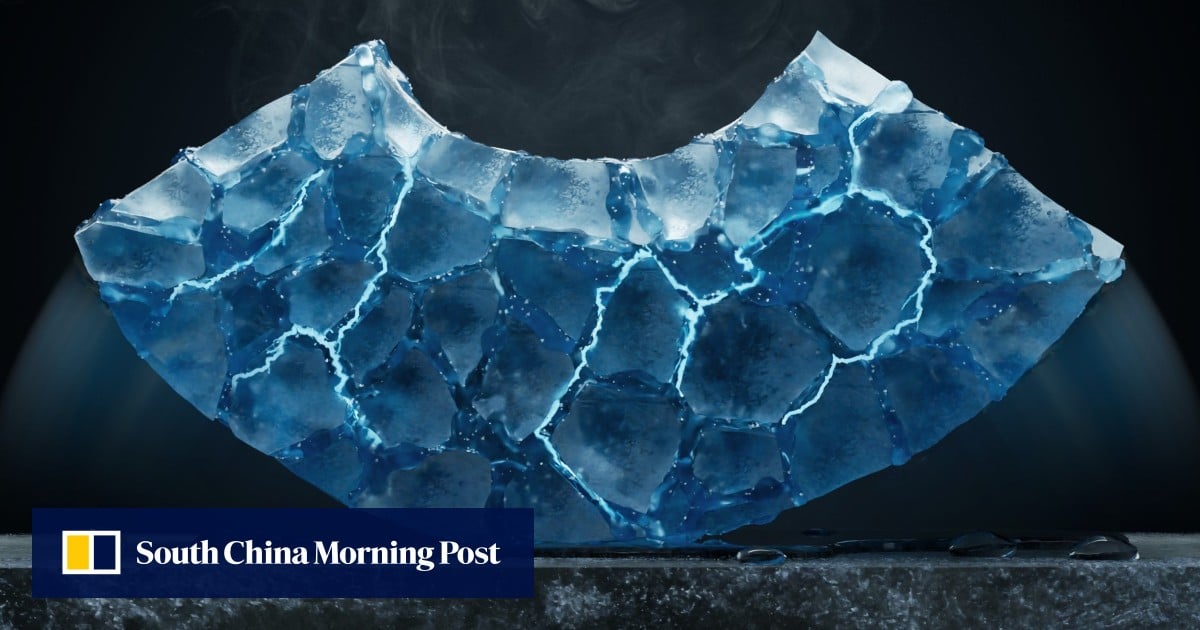Unlock the Editor’s Digest for free
Roula Khalaf, Editor of the FT, selects her favourite stories in this weekly newsletter.
On a recent morning, Maciej Gudowski was at work narrating a Polish-language voiceover for television of The People vs….

Unlock the Editor’s Digest for free
Roula Khalaf, Editor of the FT, selects her favourite stories in this weekly newsletter.
On a recent morning, Maciej Gudowski was at work narrating a Polish-language voiceover for television of The People vs….

Unlock the Editor’s Digest for free
Roula Khalaf, Editor of the FT, selects her favourite stories in this weekly newsletter.
China has stepped up the enforcement of its controls on chip imports, as Beijing seeks to wean the country’s technology companies away from US products such as Nvidia’s artificial intelligence processors.
Teams of customs officers have been mobilised at major ports across the country in the past few weeks to carry out stringent checks on semiconductor shipments, according to three people with knowledge of the matter.
The inspections started with the goal of ensuring that local companies stop ordering Nvidia’s China-specific chips following guidance from Chinese regulators to discourage their purchase, said the people.
The targeted processors — Nvidia’s H20 and RTX Pro 6000D — are designed to adhere to US export controls and maintain the Silicon Valley chipmaker’s market share in China.
But one person said the checks had been extended more recently to all advanced semiconductor products, to also better target the smuggling of high-end chips that breach US export curbs.
Chinese customs had previously done little to prevent chip imports as long as appropriate duties were paid at the border. The Financial Times reported that at least $1bn worth of Nvidia’s top AI chips were smuggled and sold in China in the three months from May.
The border crackdown further marks Beijing’s determination to ensure its tech companies break free from relying on American technology and help the country win the AI race against the US.
China is seeking to put its resources behind domestic chipmakers, so they catch up in product performance and manufacturing capacity.
In addition to tightened border controls, some customs officials also looked at whether companies had made false declarations in the past about the import of advanced semiconductor products, said two of the people familiar with the inspections.
US quants trading giant Tower Research has been investigated for alleged smuggling of hardware including advanced chips, the FT reported last week. The probe was part of this new wave of import controls.
China’s regulators led by Cyberspace Administration of China (CAC), the internet watchdog, told tech companies led by ByteDance and Alibaba in mid-September to terminate their orders and testing for all Nvidia products. The new border controls have been carried out as a co-ordinated effort alongside the CAC.
The regulator’s guidance came just two months after Nvidia announced an earlier US export ban on H20 had been lifted by the Trump administration, while also introducing the RTX Pro 6000D, another watered-down AI chip for China.
The latest moves have occurred as senior officials in Beijing have determined that domestic chips have reached performance standards that compare with Nvidia’s China-specific chips.
China also aims to triple its production of advanced semiconductors next year, in a move designed to fill the demand left by Nvidia, the FT reported last month.
While Nvidia no longer includes China in its future revenue projection, it recorded $4.6bn in the first quarter of this fiscal year from selling H20 to China, its fourth-largest market, before the US temporarily restricted sales.
China’s customs did not respond to requests for comment. Nvidia declined to comment.

If you like playing daily word games like Wordle, then Hurdle is a great game to add to your routine.
There are five rounds to the game. The first round sees you trying to guess the word, with…

Here’s a look at the most interesting products from the past week, featuring releases from Object First, OPSWAT, Radiflow, and Semperis.

Purpose-built for…

Unlock the Editor’s Digest for free
Roula Khalaf, Editor of the FT, selects her favourite stories in this weekly newsletter.
Five years ago, a book about lost Irish words and their intimate connection to the Celtic nation’s physical landscape…

Stay informed with free updates
Simply sign up to the Oil & Gas industry myFT Digest — delivered directly to your inbox.
An escalating dispute between the United Arab Emirates and Sudan has ensnared the commodities trader Vitol and disrupted supplies to one of the world’s busiest marine fuel hubs.
The UAE has refused to accept any cargoes to and from Sudan’s main port since early August amid deteriorating relations with the country’s military government, which accuses Abu Dhabi of meddling in the brutal Sudanese civil war.
The blockade of Port Sudan has prevented Vitol, the world’s biggest independent oil trader, from shipping the preferred crude to its refinery in the emirate of Fujairah to be made into the low sulphur fuel used to power tankers.
The crude originates in South Sudan, an independent and landlocked country that sends much of its daily output to Port Sudan and on to Vitol’s terminal for processing.
But that arrangement has been upended by the conflict in Sudan that has pitted Abdel Fattah al-Burhan’s military government against the paramilitary Rapid Support Forces.
Sudan has accused the UAE of arming the RSF, led by the warlord Mohamed Hamdan Dagalo, known as Hemedti, and fuelling a two-year civil war that is estimated to have killed more than 150,000 people.
The Sudanese government severed diplomatic ties with Abu Dhabi in May after RSF drones struck Port Sudan, base for the wartime government, an attack that it partly blamed on the wealthy Gulf state.
The UAE energy and infrastructure ministry then issued an August 7 decree that prohibited the handling of any cargoes to or from the Sudanese port, according to notices sent to harbourmasters and shipping clients.
The UAE has strongly denied supporting any of Sudan’s warring parties, and the foreign affairs ministry did not respond to requests for comment on why it imposed the blockade.
However, its action came amid an intensifying war of words with Sudan’s armed forces that have aligned with Islamist militias on the battlefield.
South Sudan produces about 149,000 barrels of crude a day, according to the US Energy Information Administration, although a shutdown of the pipeline to Port Sudan had disrupted the trade even before the blockade.
Much of the crude is taken to Vitol’s Fujairah terminal to be refined into so-called bunker fuel, used to power tankers and other marine vessels.
Facilities in the UAE — close to the Strait of Hormuz, one of the world’s busiest shipping lanes — specialise in this type of marine fuel, with Vitol saying its product powers about 1,800 ships in the region a year.
The Vitol refinery, in which the Fujairah government is a minority owner, mainly uses crude shipped from Port Sudan to produce bunker fuel.
The Geneva- and Rotterdam-headquartered company has been the only regular importer of Port Sudan crude into the UAE for at least a year, according to data from analytics company Kpler.
However, no South Sudanese cargoes have arrived in the UAE since July 30, according to the data, requiring a facility with a daily capacity of about 100,000 barrels to operate without its preferred feedstock.
Other types of crudes can be used to make bunker fuel, although it is more expensive to source cargoes at short notice. The Kpler data showed Vitol was the buyer of about 2mn barrels of the alternative crudes that arrived in the UAE in August.
Vitol declined to comment on activities at its Fujairah refinery, but denied that the absence of South Sudanese crude had forced it to halt refining.
The crude that South Sudan’s government relies on for much of its revenues has been redirected to other destinations, according to the Kpler data, notably Malaysia, where Vitol has an alternative bunker fuel refinery.
While no crude from Sudan was offloaded in the UAE in August, just over 100,000 barrels from the country instead arrived in Malaysia. This was a big increase in the monthly average of 27,000 barrels over the past five years.
Additional reporting by Tom Wilson and William Wallis in London, cartography by Steven Bernard

Studio Ghibli co-founder Isao Takahata seems an unlikely embodiment of kodawari, the pursuit of perfection. Eulogising the anime writer and director, who died in 2018 aged 82, his friend and Ghibli colleague Hayao Miyazaki noted that he was not a…

Scientists from China and Spain have discovered that adding salt to ice can enable it to generate electricity, opening up the possibility of harnessing clean power in cold environments – with a twist.
The team found that when salt-doped ice was…
